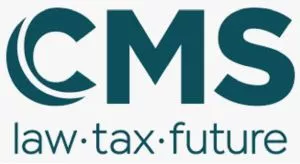Introduction
In recent years, both investors and investment managers have been keen to develop debt instruments for meeting the demand of alternative sources of financing for small and medium-sized enterprises (SMEs), in particular when they are unable to secure credit from the traditional banking system.
One of the main instruments for implementing a private debt strategy in Luxembourg is the private debt fund, which is attracting more and more interest from investors and investment managers for several reasons.
Indeed, Luxembourg private debt funds experienced a 51% growth in assets under management between June 2022 and June 2023, reaching EUR 404.4 billion 1. The economic rationale appears to be the steady increase in interest rates since 2021 2, which has priced out a large number of SMEs while promising higher and stable profits for investors over the medium to long term. Judging by the continued growth of private debt funds, it appears that investors expect interest rates to at least remain at their current level as long as the European Central Bank succeeds in mitigating inflation.
Another factor which helps explain the steady growth of private debt funds is the Luxembourg regulatory framework, which facilitates (under certain conditions) lending activities for investment funds. The upcoming entry into force of the amendments to Directive 2011/61/EU (AIFMD) on alternative investment fund managers (the so-called AIFMD II) 3, which will set a harmonized framework for loan origination across the EU, will likely further bolster the current market trends for private debt funds.
In this context, cautious optimism in the foreseeable future appears warranted for this asset class and it would not be surprising if it took up a greater proportion of fund managers' portfolios.
This newsflash will first provide a brief overview of the loan origination regime currently applicable in Luxembourg, before outlining the changes that AIFMD II will bring, particularly for non-regulated funds.
Part 1: Luxembourg's attractive lending regime for private debt funds
It is worth noting at the outset that there is currently a patchwork of domestic rules on loan origination, which leads to an uneven playing field across the EU. Until the implementation of AIFMD II (expected Q1 2026), each national regime (including in Luxembourg) will still be applicable, which means that regulatory convergence is unlikely before then and forum shopping by market participants will likely continue in the next few years.
Domestically, the approach chosen by Luxembourg has been to accommodate debt funds' strategies through its general investment management framework 4. The well-known Luxembourg investment fund toolbox has already proved to be attractive to managers looking for a favourable jurisdiction in which to establish their funds, and private debt funds are no exception. In addition, the Commission de Surveillance du Secteur Financier (CSSF) had already designed a framework 5 to regulate private debt funds, but it has also allowed the development of a market practice for lending operations (including loan origination), especially for alternative investment funds 6 (AIFs).
Lending operations (which include loan origination) are regulated in Luxembourg pursuant to article 28-4 of the Luxembourg law of 5 April 1993 on the financial sector (the LFS), which requires professionals to be authorized by the CSSF when engaging in the business of granting loans to the public for their own account.
The CSSF has set out certain narrow and specific exemptions for private debt funds originating loans:
i) Statutory exemption from the requirements laid down in article 28-4 of the LFS for regulated funds:
This exception concerns in particular specialized investment funds (SIFs) governed by the law of 13 February 2007 relating to SIFs, undertakings for collective investment (UCIs) authorized under Part II of the law of 17 December 2010 relating to UCIs and investment companies in risk capital (SICARs) governed by the law of 15 June 2004 relating to SICARs.
Simply put, these vehicles, when originating loans, are not subject to a CSSF licence because they fall outside the scope of the LFS but remain, nevertheless, subject to other applicable Luxembourg legislation, including consumer protection rules and regulations.
Incidentally, despite long-standing diverging market views, unregulated funds (such as reserved alternative investment funds (RAIFs) governed by the law of 23 July 2016 relating to RAIFs) are not covered by the LFS statutory exemption and therefore do require CSSF approval to engage in loan origination, unless they can qualify for other exemptions available for unregulated funds.
ii) Exemption available for unregulated funds:
The CSSF has provided some guidelines on several cases where article 28-4 of the LFS does not apply to Luxembourg AIFs that originate loans.
There are objective exemptions that do not necessitate a deep legal analysis (so-called "safe harbours"), such as where:
- the loans are provided on an irregular basis, and would therefore not constitute a professional activity;
- the loans are issued exclusively intra-group; and
- each loan granted has a nominal value of at least EUR 3,000,000 and is granted exclusively to "professionals" as that term is defined in the Luxembourg Consumer Code.
In addition, unregulated funds could also benefit from an exemption when the loan is not granted to the public but, according to CSSF guidelines, to "a limited circle of previously determined persons".
This notion, however, remains vague and must be interpreted on a case-by-case basis. For this reason, it is strongly recommended that a thorough legal analysis is conducted and that a request for a negative clearance letter is submitted to the CSSF in order to prevent any legal uncertainty regarding the applicability of this exemption.
Part 2: The upcoming regime of loan origination under AIFMD II
To this day, rules set by each Member State generally do not provide sufficient guidance and clarity on how a loan origination activity should be lawfully conducted (including in Luxembourg, as described in Part 1).
The so-called AIFMD II will provide a minimum number of safeguards and risk procedures for funds aiming to engage in loan origination. The new set of rules is warmly welcomed by the industry, as it will not only provide additional clarity but also create a level playing field across jurisdictions, thereby strengthening the private debt market by providing more business opportunities to funds, while also establishing a high level of protection for investors.
For a full description of the key features implemented by AIFMD II, please refer to our previous article.
As with any new or upcoming regulation, AIFMD II already raises questions that will need further clarification from the legislator.
After a transitional period, existing AIFs that originate loans or gain exposure to loans through third parties (regardless of whether an AIF meets the definition of loan-origination AIF) will need to implement effective policies, procedures and processes for assessing their credit risk. It is worth noting, however, that we do not have more details on these procedures at this time. From a Luxembourg perspective, one could expect that these requirements will be similar to the ones already prescribed by the CSSF for AIFs engaged in loan origination/participation (see footnotes 5 and 6).
Market participants are also eagerly awaiting the regulatory technical standards to be issued by the European Securities and Markets Authority (ESMA) for clarification on liquidity management tools (LMTs) for loan origination AIFs that will remain open-ended at the end of the transitional period.
For the time being, one should be mindful that point 9(a) of the recitals of AIFMD II clearly states that "AIFs granting loans to consumers are subject to the requirements of other instruments of Union law applicable to consumer lending".
It is also legitimate to ask whether the CSSF position will evolve following the entry into force of AIFMD II and especially on the notion of "public". Would the notion be narrowed to allow loan origination AIFs to make the most of the new regime? If this were the case, it may encourage unregulated funds qualifying as loan origination AIFs to dispense with having to submit a request to the CSSF for a negative clearance letter.
In the meantime, Member States remain free, of course, to "lay down national product frameworks that define certain categories of AIFs with more restrictive rules", although such considerations will have to be weighed against the risk of seeing managers favouring other more welcoming jurisdictions in which to domicile their loan origination funds.
Footnotes
1. ALFI/KPMG Private debt fund survey 2023
2. Key ECB interest rates, European Central Bank's website (https://www.ecb.europa.eu/stats/policy_and_exchange_rates/key_ecb_interest_rates/html/index.en.html)
3. Final text of political agreement on AIFMD II has been published, 15.11.23, CMS Newsflash (https://cms-lawnow.com/en/ealerts/2023/11/final-text-of-political-agreement-on-aifmd-ii-has-been-published)
4. The Luxembourg private debt funds scene – an asset class on the rise, 2017, JurisNews Investment Management vol. 5 – N°3/2017, page 95
5. Questions and answers on the statuses of "PFS" - Part II, point C7, 15 June 2021, CSSF
6. CSSF FAQ - Luxembourg Law of 12 July 2013 on alternative investment fund managers, point 22, 16 December 2022, CSSF
The content of this article is intended to provide a general guide to the subject matter. Specialist advice should be sought about your specific circumstances.



